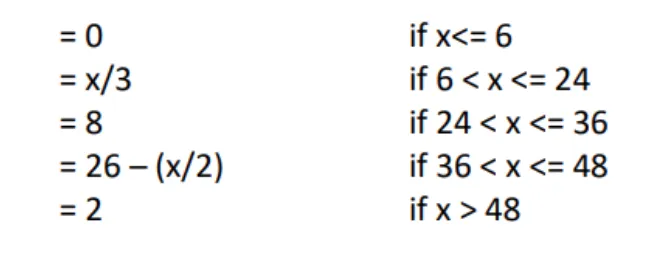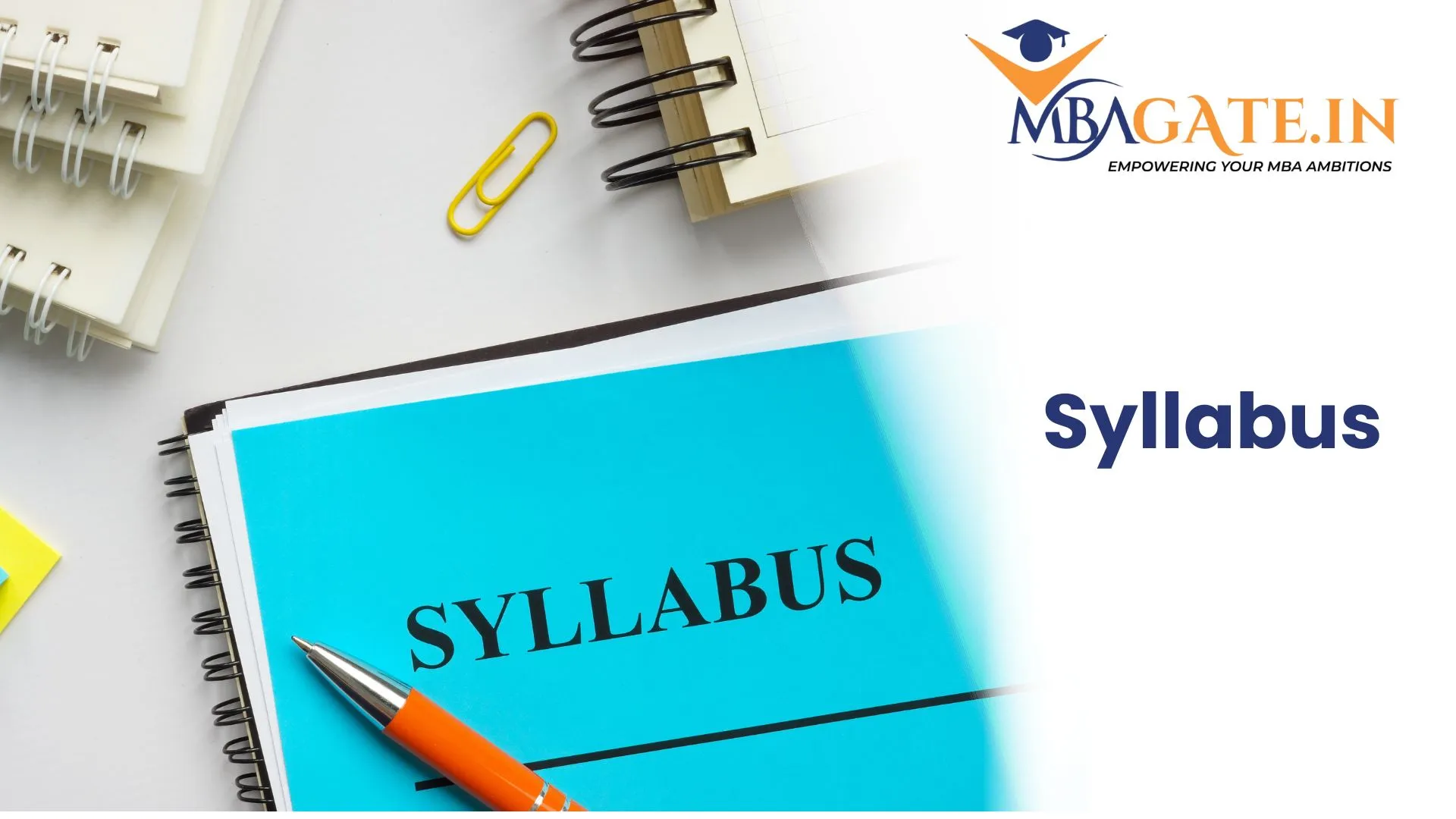MBA Admission 2025: Registration, Exams, Cut-Offs & IIM Selection Process
Table of Content
-
- + more items Show less
The admission process for management programs in India is a multi-stage selection procedure that is meant to pick up the best candidates. It is for the aspirants who want to build their careers in the field of management and move up to leadership roles. The process begins with the students choosing the institutes they wish to apply to and submitting their applications through the institute's respective admission portals.
Most of the top management institutes in India including IIMs, IITs and other private colleges ask the aspirants to sit for national-level entrance exams such as CAT, XAT, GMAT, NMAT, SNAP or CMAT. These exams are meant to assess the candidate's analytical and problem-solving skills.
After clearing the entrance exam institutes shortlist candidates on the basis of their exam scores and invite them for further selection rounds such as Written Ability Test (WAT), Group Discussion (GD) and Personal Interview (PI). The WAT tests the writing and analytical abilities of candidates while the GD round tests their teamwork, leadership and communication skills. The PI round is a very critical stage where candidates are tested on various parameters such as their personality, career goals, academic background and industry awareness. Some institutes also conduct case discussions or extempore sessions to check the spontaneity and decision-making skills.
The admission cycle usually starts a year in advance and the application forms are released in the months of August-September. The entrance exams are usually held between November and January followed by selection rounds in February-April and finally admissions take place by May-June.
Highlights of the MBA Admission Process
The MBA admission process in India is designed to enable students and professionals to move on to higher management positions. This two-year program is offered in full-time, Part-time and Online formats. It is based on entrance exams such as CAT, XAT, GMAT, NMAT and SNAP along with GD, WAT and PI.
The selection process also considers past academic records, work experience and diversity. Top institutes like IIMs, IITs, XLRI and ISB offer MBA programs with fees varying from ₹2.00 lakhs to ₹45.00 lakhs and salaries ranging from ₹3.00 Lakhs to ₹35.00 Lakhs a year. After graduation, students occupy leadership positions in various industries and hence an MBA is a good career option. The highlights of the MBA admission process are given below:
MBA Program Application Process
The process of applying for an MBA program in India begins with the selection of the right business schools and understanding and fulfilling their eligibility criteria.
Candidates must first get themselves registered and appear for entrance exams like CAT, XAT, GMAT, NMAT or SNAP depending on the institute's requirement.
Once the results are declared, shortlisted candidates are called for further selection rounds which may include a WAT, GD and PI. These rounds test communication skills, problem-solving ability and leadership potential.
Some institutes also consider academic performance, work experience and diversity factors in their final selection process.
After clearing all stages of the admission process the students are offered admission. Their admission is considered final when the fee payment is done. Effective preparation and on time application and strong interview performance get the students admitted to one of India’s leading MBA programs.

Eligibility Criteria for Admission
The eligibility criteria for MBA/PGDM colleges in India differ from one college to another. Still, the general MBA requirements for the colleges in India remain the same. Some of these requirements such as educational qualification, entrance exam, work experience, academic diversity and selection process are given below:
MBA Entrance Exams
In India, admission to top management colleges is provided through the popular MBA entrance exams. The exams are a way of checking the aptitude, analytical abilities and suitability of the candidate for management education. The MBA entrance exam in India is mainly conducted under three categories which are national-level exams, university-specific entrance exams and state-specific entrance exams. The details of these entrance exams are given below:
National-Level MBA Entrance Exam
CAT Exam - The Common Admission Test is one of the most important entrance exams for admission into MBA programs especially at leading business schools in India including the Indian Institutes of Management (IIMs) as well as other popular institutions such as FMS, SPJIMR, MDI etc. Every year on the rotational basis MBA entrance exams are conducted by the IIMs.
The CAT exam has DILR, QA and VARC sections.It is a test of a candidate's reasoning analytical skills and writing abilities all of which are highly pertinent to the management role. Therefore the CAT exam is designed to assess which of the candidate's skills are relevant to business management.
XAT Exam - The Xavier Aptitude Test is a key determinant for admission into MBA
programs especially at leading institutions such as XLRI Delhi and over 150 affiliated colleges. It is being carried out yearly by XLRI for XAMI (Xavier Association of Management Institutes).
Verbal and logical ability, decision-making, quantitative ability and data interpretation and general knowledge are all sections that are present in the XAT entrance exam which focuses its attention on decision-making ability which is of relevance to future managers of businesses. The XAT test is prepared in such a way that it evaluates the candidate's aptitude and skill set in areas of business management.
GMAT Exam - It is an international exam accepted by top global and Indian business schools like ISB and SPJIMR. The GMAT exam scores are valid till five years. Now the exam is known as GMAT Focus Edition. The units have been prepared to evaluate the skills needed to succeed in a workplace environment and to problem-solve, analyse and effectively communicate.
Common Management Admission Test (CMAT) - The institution organising the CMAT exam is NTA. The AICTE-approved institutions accept the CMAT test. Here it tests the student's level in quantitative techniques, logical reasoning, language skills, general awareness and innovation and entrepreneurship. The exam is three hours long. The top institutes that accept the CMAT scores are IMI, K.J Somaiya Institute of Management, Christ University etc.
Management Aptitude Test (MAT)- For the mid-tier management colleges in India AIMA MAT organises the MAT exam. The sections include Language Comprehension, Mathematical Skills, Data Analysis, Reasoning and General Knowledge. The sections include Language Comprehension, Mathematical Skills, Data Analysis, Reasoning and General Knowledge.
State-Level MBA Entrance Exam
Some of the most popular state-level MBA admission tests are given below:
Maharashtra Common Entrance Test (MAH CET): The entrance exam for the state's top MBA colleges like JBIMS and SIMSREE in Maharashtra is known as MAH CET. It evaluates Logical Reasoning, Abstract Reasoning, QA and Verbal Ability.
Karnataka PGCET: For MBA admissions in Karnataka-based colleges. It covers sections on QA, Logical Reasoning, General Knowledge and English.
AP ICET/Telangana ICET: This Entrance exam is conducted for MBA admissions in Andhra Pradesh and Telangana respectively. It evaluates Analytical Ability, Mathematical Skills and Communication Skills.
TANCET Exam: Anna University organises the TANCET a state-level entrance test for admission to MBA programs in Tamil Nadu. This test is conducted every year for candidates who seek to gain entry into the management course that universities and affiliated colleges conduct. TANCET MBA exam contains three sections: Quantitative Ability, Analytical Reasoning, English and General Awareness.
Institution-specific MBA Entrance Exam
IIFT (Indian Institute of Foreign Trade): The IIFT entrance exam is organised for admission into its MBA in International Business. The test measures Quantitative Aptitude, Logical Reasoning, Verbal Ability and General Knowledge.
SNAP (Symbiosis National Aptitude Test): It is a popular entrance exam organised for admission into the MBA programs of Symbiosis International University (SIU). This MBA admission test in India examines the candidate's General English, Quantitative Skills, Analytical Ability and General Awareness.
NMAT (Narsee Monjee Aptitude Test): Conducted by GMAC for entry to NMIMS and other selected colleges. It can be taken a maximum of three times with the consideration of highest scores.
Cut-Off
CAT Exam Cut-Off
CAT is one of the most competitive entrance exams for admission into some of the best management programs such as the MBA in India especially at the Indian Institutes of Management (IIMs) and other top business schools. The CAT exam cutoff is the minimum score or percentile a candidate must achieve to become eligible for the next stage of the admission process.
The next step includes group discussions, written ability tests and personal interviews. Institutes set their own cutoffs based on factors such as the number of applicants, seat availability and overall performance of candidates. The cutoffs may differ for different categories such as General, OBC, SC and ST so that everyone gets a fair chance.
IIMs CAT Cut-Off
The list of 21 IIMs along with their cut-offs is given below and the colleges are arranged according to the NIRF ranking 2024 with IIM Ahmedabad, Bangalore and Kozhikode at the top:
IITs CAT Cut-Off
The list of IITs along with their cut-offs is given below and the colleges are arranged according to the NIRF Ranking 2024:
Other Institutes CAT Cut-Off
Most of the leading MBA schools accept CAT scores. FMS, IIFT and MDI have cut-offs of over 95 percentile whereas IMI, SPJIMR and Great Lakes are between 85-92 percentile. Institutions such as Chandigarh University and Amity have lower cut-offs at 75-88 percentile. A list of other institutes that accept CAT exam scores is given below along with their cut-offs:
XAT Exam Cut-Off
List of the top management institutes that accept the XAT cut-off is given below:

MBA Selection Process
The IIMs will put their entrance requirements on their official website. Non-IIMs also make their requirements public. Candidates can see these requirements and then they can apply online for admission to their desired IIM or any other B-School. On the basis of their selection criteria, the Indian Institute of Management (IIM) selects candidates for their interview rounds.
However, the entrance exam scores still remain an important criterion for selection at IIMs and other colleges. The past academic records, diversity of qualifications, gender etc. of the candidate are also used in the selection process. The composite scores of the candidate in all rounds are used to determine their admission into IIMs. Every IIM has a different admission process. Candidates can check the official website of the IIMs & other B-schools to learn more about their selection and admission process in 2024.
The Selection Process of the IIMs through the CAT Exam
After the CAT exam is over the students' selection process for admission into the MBA program will have three rounds. These are as follows:
Round 1: CAT Exam Results and the shortlisting of the candidates by IIMs.
Round 2: Rounds of Writing Ability Test (WAT) & Personal Interview Round (PI). Some colleges may also take the Group Discussion round.
Round 3: Verification and the Final Selection of the candidate.
Round 1: CAT Exam Results and the shortlisting of the candidates by IIMs
The IIMs will first announce the CAT Exam results. IIM Calcutta which is conducting the CAT Exam 2024 will release exam results. After CAT exam results are announced, the Indian Institute of Management (IIMs) will select the candidates for their PI and WAT rounds. The invitation will be sent to their registered email address.
The invitation letter will contain the following information:
Link for registering for the further selection process.
The deadline for finishing the CAP registration for the nine IIMs.
The location, date and time of WAT-GD and PI will also be mentioned in the invitation letter.
Round 2: Personal Interview Round and Writing Ability Test Round (WAT-PI-GD)
The next round of the IIMs & other B-schools is the selection process. Rounds of the Writing Ability Test (WAT) and Personal Interview (PI) will be included in this stage. Some institutes also take the Group Discussion round for selecting the candidates. Candidates are checked for their general knowledge, communication skills, performance in previous rounds and ability to think critically.
Given below are certain parameters for the GD-WAT-PI rounds that the IIMs consider:
Round 3: Verification and the candidate's final selection.
The person is accepted based on various criteria once it has been established that they meet all the criteria. The following are the criteria upon which the final IIMs do selection:
Note: These parameters may vary based on different IIM selection criteria.
Given below is a sample of the admission process at IIM Calcutta. It is given for the aspirant's better understanding of the admission process at IIMs.
Note: The selection criteria of different IIMs may vary.
An Example of IIM Calcutta MBA Selection Criteria
A. Shortlisting candidate for Personal Interview (PI) and Writing Ability Test (WAT)
A shortlist of candidates will be selected based on the CAT score as well as additional factors like academic standing and gender diversity.
Stage I: Candidate’s Minimum CAT percentile cut-offs for PI and WAT
The candidates will be shortlisted for sectional and overall percentiles in stage 2 if they meet the minimum eligibility criteria in stage 1 of the CAT score as shown in the table below.
Table 1: For Stage 1 - Min. CAT percentile needed
Note: The table given above is from IIM Calcutta’s official website.
Stage II: Round for Personal Interview and Written Ability Test (PI-WAT)
The selected candidates will be invited for the Writing Ability Test (WAT) and Personal Interview (PI) rounds after the completion of the first round of the selection process. Then candidates will be selected on the basis of their composite score. The method used to calculate the composite score is given in the table below:
Table 2: Parameters and their weightage for calculating composite scores for PI and WAT
Note: The table given above is from IIM Calcutta’s official website.
In the IIM Calcutta, LGBTQ+ candidates can also apply for the courses. However, the points for the marks gained by the student in Class 10 and Class 12, respectively, will be given as per the Table below:
Table 3: Points for marks obtained in Class 10 and Class 12
Note: The table given above is from IIM Calcutta’s official website.
Stage III: Final Selection of the candidate for admission into the MBA Program
The composite score which is calculated after the PI and WAT round is given in the table below: In the table parameters and weightage are given that are used to calculate the candidate's score. Using the composite scores, a merit list will be made.
Table 4: Parameters and weightage for the final selection of candidates for the MBA Program
Note: The table given above is from IIM Calcutta’s official website.
Academic Diversity
The candidates will be given points according to their academic diversity. The criteria are given below:
Table 5: Points for Academic Diversity
Note: The table given above is from IIM Calcutta’s official website.
Work Experience
By using the formula given below, the candidates will get eight points for their job experience based on the duration of their service period. P.G. degree is only required for the course participation. Some exclusions are unpaid labour, training, internship, apprenticeship etc.
Candidates have to submit a letter from their employer with an authorised signature along with the start and end date, position and designation. Moreover, the submission of the payslip(s) from each employer is required.
In case, a payslip is unavailable evidence of company registration, applicable licenses and paid taxes must be given for self-employed individuals and family businesses.
The Points are given to the candidate for their Work Experience:

FAQs
Yes, there are several entrance exams for admission into the MBA program. The exams are conducted on a national level and state level and various institutes conduct their own entrance exams. The national level exams are CAT, XAT, CMAT, MAT, NMAT, SNAP, GMAT etc. State level exams are KMAT, TANCET etc and some institute-specific entrance exams are SNAP for symbiosis and NMAT for Narsee Monjee Mumbai etc.
The minimum eligibility criteria for admission into an MBA program are - Educational Qualification: Min. 50% scores in graduation for the reserved category. (IIMs & IITs require 50-60% marks), Work Experience: No previous work experience is needed. Having work experience is always a plus, Entrance Exam: The candidates need to clear the entrance exams such as CAT, XAT, MAT, SNAP, CMAT, NMAT, GMAT etc for admission into the MBA program, Academic Diversity: Candidates from diverse educational backgrounds such as engineering, arts or science can apply as well, Selection Process: After clearing the entrance exam the candidates will be called for further selection processes such as GD-WAT-PIand Additional Requirements: Candidate's performance in 10th and 12th grade, passing marks of graduation and diversity criteria such as gender, professional or geographical diversity.
The MBA fees of the top five B-schools are IIMA - ₹26.50 Lakhs, IIMB - ₹26.00 Lakhs, IIMK - ₹20.50 Lakhs, IIMC - ₹27.00 Lakhs and IIMM - ₹21.00 Lakhs.









